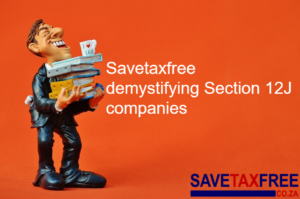TFSAs – a word from National Treasury
Related Articles
Staff Writer | 02 February 2017
It’s a case of slow and steady for the tax-free savings market with no material changes to the regulations likely to be introduced.
With Treasury largely happy with the progress of tax-free savings accounts (TFSAs), no significant changes are expected when Finance Minister Pravin Gordhan announces his 2017/18 Budget later this month.
With TFSAs still in their infancy, Treasury is of the view that it is still early days, and too soon for any drastic changes. With over 260,000 accounts opened in the first year, and 39,458 of those belonging to first-time investors, Treasury is satisfied that it’s initiative to promote a greater savings culture is on the right path.
“It’s a very good start,” says Christopher Axelson, director of personal income taxes and saving at National Treasury. “You see, when incentives are introduced to the market it’s always hard to get exposure and penetrate with the general public, so we’re satisfied with the figures.”
While Treasury is satisfied, Axelson says more data are needed to properly gauge the product’s performance. He says Treasury will continue collecting and monitoring data from the South African Revenue Serviced (SARS) to be in a better position to implement appropriate changes in future.
Despite Treasury’s optimism, it is no secret that the product has been received with mixed feelings by service providers. Many argue, among other things, for the annual and lifetime limits to be raised from R30,000 and R500,000 respectively. And with SA’s economic woes, some industry players believe the low savings rate may require a bit more than a tax incentive to address adequately.
“It’s an extremely difficult time, the economy isn’t going the way we’d like it. It’s true that you need an adequate income to live on before you can even start saving. But, saying that, we still feel it’s important to save,” says Axelson. “The fact is, if more people were saving or investing it would lead to an increase in capital spending, which in turn would lead to the creation of more employment. So it’s all linked in a way.”
Axelson acknowledges that this one incentive is not going to be the solution to all of the country’s financial predicaments, but it’s one of many meant to address the situation.
He believes the question of whether TFSAs are beneficial or not has more to do with the type of client rather than the product, which he feels may not be of significant benefit to high net-worth individuals, which he says, were never the target client in any case.
Though Treasury is pleased with the product’s performance so far, Axelson feels there is still room for improvement, particularly with regards to long-term investments. “What we haven’t seen enough of is higher return long-term investments. This could be due to the penalty rule or the fact that individuals have easy access to their money.
“So what we tried to do in the draft regulations in September was to align the treatment of fixed deposits within a TFSA with regular fixed deposits, by allowing providers to have discretion over whether clients may have access to their funds before the maturity date.
“Besides this one proposed amendment, we haven’t put any further changes. We want to be conservative to start with, to encourage more people to start saving, so high-risk products might not be suitable, especially for first-time savers.”






